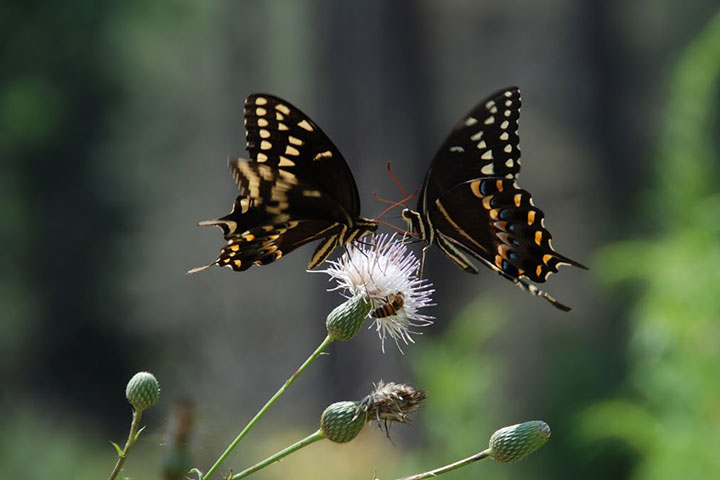 Nearly $400,000 will be awarded by NOAA’s National Estuarine Research Reserve System Science Collaborative, managed by University of Michigan Water Center, to four projects involving 15 reserve sites across the nation. These grants support the transfer of existing information, approaches, and techniques from the natural, social, or physical sciences to support reserve activities and programs across all reserve sectors.
Nearly $400,000 will be awarded by NOAA’s National Estuarine Research Reserve System Science Collaborative, managed by University of Michigan Water Center, to four projects involving 15 reserve sites across the nation. These grants support the transfer of existing information, approaches, and techniques from the natural, social, or physical sciences to support reserve activities and programs across all reserve sectors.
Science Transfer projects will generate resources and tools to support community education about wetland ecosystem services and blue carbon resources; develop strategies for conflict management in collaborative science projects; build local climate change knowledge and resiliency by engaging local decision-makers and community members; and transfer approaches for adopting pollutant removal efficiency standards of buffers in estuaries.
For more information, see the table below or download the PDF.

2018 NERRS Science Collaborative Science Transfer Projects
| Project Lead and Affiliation | Project Title | Participating NERRs |
|---|---|---|
|
Christine Feurt,
Wells NERR |
Resilience Dialogues: Strategies for Conflict Management in Collaborative Science | Guana Tolomato Matanzas (FL), Wells (ME), Grand Bay (MS), North Carolina (NC), Old Woman Creek (OH), Rookery Bay (FL), San Francisco Bay (CA), Narragansett Bay (RI), Hudson River (NY), Lake Superior (WI), Mission Aransas (TX), Great Bay (NH), Waquoit Bay (MA) |
|
Michelle LaRocco,
North Inlet-Winyah Bay NERR |
From NECAP to GCAP: Transferring Climate Adaptation Knowledge and Tools from New England to Georgetown, SC | North Inlet-Winyah Bay (SC) |
|
Cory Riley,
New Hampshire NERR |
Credit for Going Green: Transfer of an Expert Elicitation Method to Develop Pollutant Load Reduction Rates for Buffers that Count Toward MS4 Permits |
Great Bay (NH), Waquoit Bay (MA), Narragansett Bay (RI)
|
|
Coowe Walker,
Kachemak Bay (AK) |
Assessing Kachemak Bay’s Blue Carbon Resources and Increasing Community Awareness and Commitment to Preserving Wetland Ecosystem Services | Kachemak Bay (AK), Waquoit Bay (MA) |

The National Estuarine Research Reserve System’s Science Collaborative supports collaborative research that addresses coastal management problems important to the reserves. The Science Collaborative is managed by the University of Michigan’s Water Center through a cooperative agreement with the National Oceanic and Atmospheric Administration (NOAA). Funding for the research reserves and this program comes from NOAA. Learn more at coast.noaa.gov/nerrs/ or nerrssciencecollaborative.org.